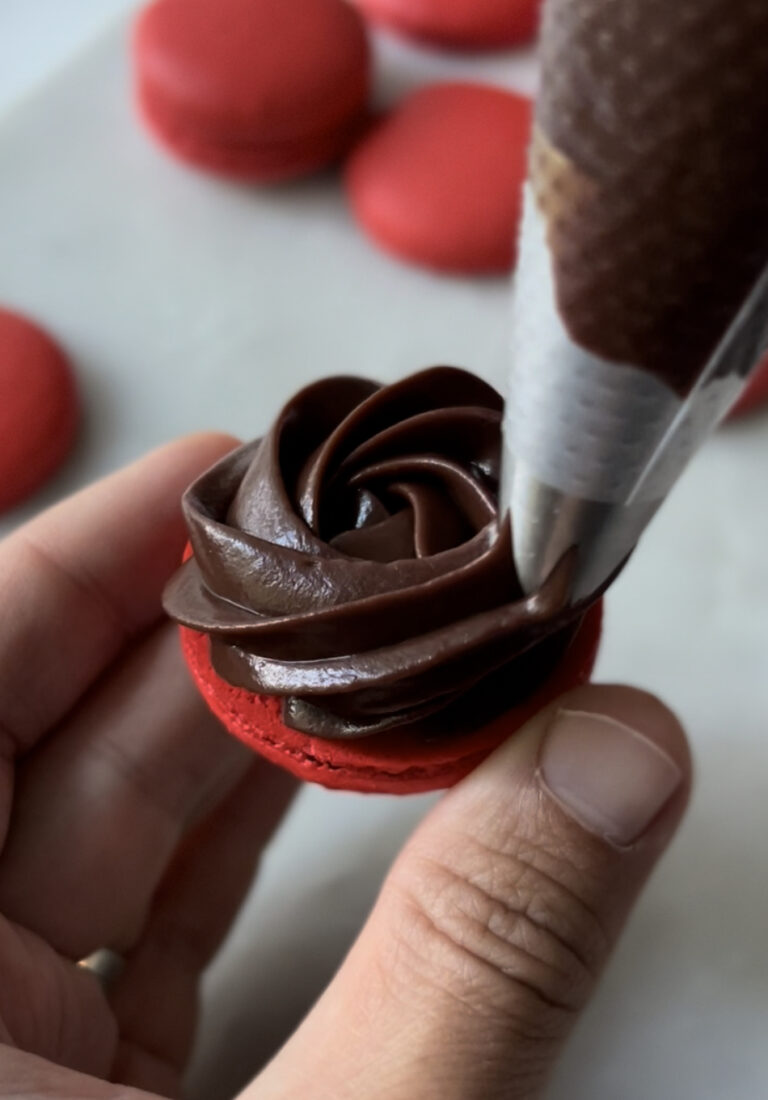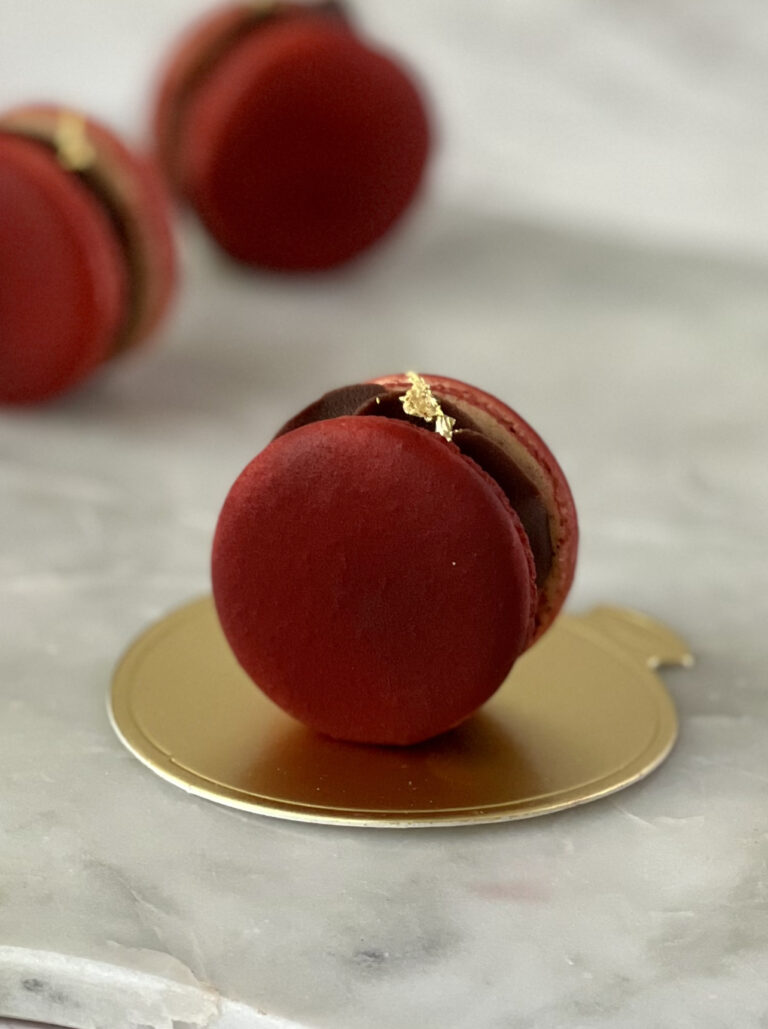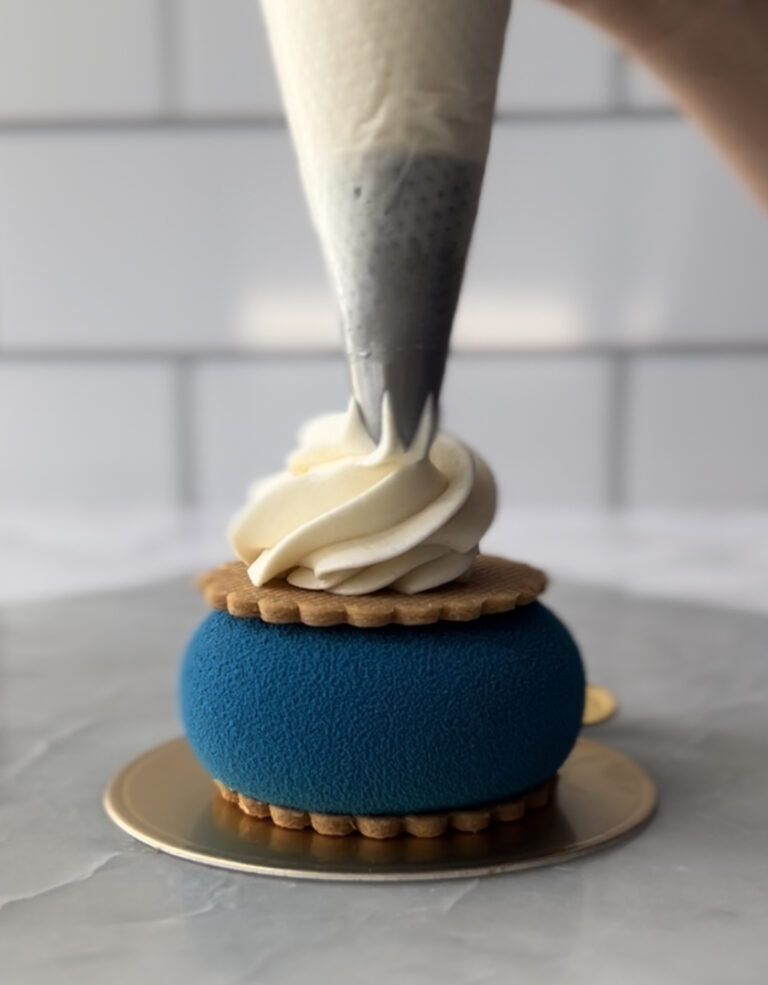The Science Behind Meringue
Meringues are versatile, they are used as a base for many desserts like cakes and macarons. A meringue is technically difficult to make, the science below will help you make them perfectly!
Learn the science behind meringue and get to baking it with confidence.

Table of Contents
What is a meringue?
A meringue is an airy and fluffy preparation made of whipped egg whites and sugar.
Egg whites contain 90% water and 10% proteins (such as albumin). These proteins provide the structural support to trap air.
The process of whisking the egg whites promotes unfolding of the proteins, leading to the formation of a mesh to which air is added. The sugar facilitates and stabilizes the trapping of air into the egg white proteins.
The addition of sugar (and therefore air) during whisking will result in the formation of a peak. The formation of a “stiff” peak (shown in the photo) is ideal for making many desserts
What is the difference between the types of meringues?
The difference among the types of meringue is the way that sugar is incorporated to the whipping egg whites.
- In the French meringue the granulated sugar is added directly to frothy/foamy egg whites.
- In the Swiss meringue, both the sugar and the egg whites are heated in a double boiler until the sugar is dissolved.
- The sugar in the Italian meringue is cooked with water until 118-120 Celsius / 240 Fahrenheit to make a syrup that is then added to the foamy egg whites.
Among the three meringues, the French one is the least stable and tends to deflate (lose the air), while both Swiss and Italian are more stable and will retain the air for a longer time. Also, because the eggs are cooked in both Swiss and Italian meringues these are safe for consumption.
How can you make a more stable meringue?
The addition of ingredients like cream of tartar and powdered egg whites will help make a more stable meringue that will help your macarons. Scientifically, the cream of tartar is an acid that facilitates the unfolding of proteins in the egg whites. The powdered egg whites will provide more proteins to then trap more air and make a fluffier and stronger meringue.
Importance of the ratio egg whites to sugar
A ratio close to 1:1 (egg whites: sugar) for meringue is the most used for baked goods. A French meringue made with a higher ratio of 1:2 (egg whites: sugar) results in a “hard meringue”, which is ideal to use for decorating or to just simply eat.

Some useful tips:
Here are some of the tips I advise you to follow.
- Always avoid any fat and oils. Wipe all your bowls before making a meringue
- When baking the meringue, do it at a lower temperature for a longer period.
- Do not try to rescue your meringue if you over whipped. Just start again.
- Use a stabilizer like cream of tartar
- Age your egg whites overnight in the fridge.
- Practice.
Recipes with Meringue






